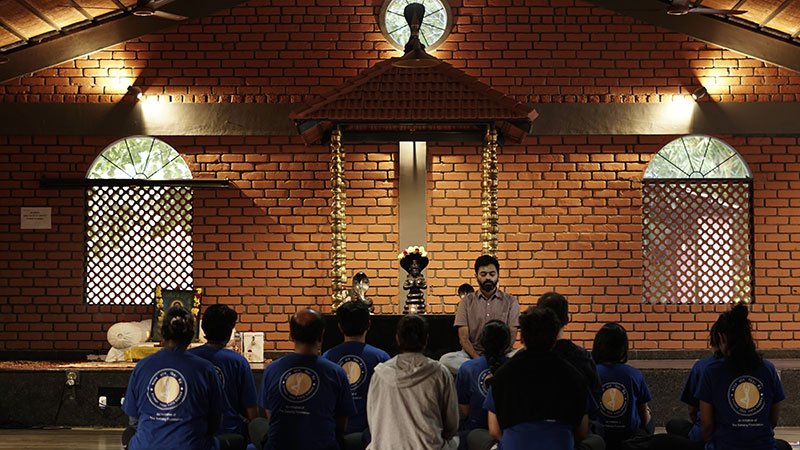Yogavidya stands at the confluence of two profound philosophies—Yoga and Vedanta (Uttara Mimamsa)—offering a holistic path for spiritual seekers. This integration not only enriches the practice of Yoga with deep philosophical insights but also provides a practical framework for Vedanta’s lofty ideals. By exploring the core messages of both philosophies, we can understand how their union in Yogavidya serves as a guide for integrating spiritual principles into everyday life.

Yoga: The Path to Liberation Through Practice
Classical Yoga, as outlined in Patanjali’s Yoga Sutras, presents a systematic approach to spiritual liberation, emphasizing the purification of the body and mind as a means to realize the true Self. Yoga’s eightfold path (Ashtanga Yoga) includes ethical disciplines (Yama and Niyama), physical postures (Asana), breath control (Pranayama), and meditative practices leading to Samadhi, the state of ultimate consciousness. Yoga views liberation (Kaivalya) as independence from material existence, recognizing the Self-nature as pure consciousness beyond physicality.
Vedanta: Knowledge and the Realization of Brahman
Vedanta, particularly the non-dualistic (Advaita) Vedanta, emphasizes the realization of Brahman—the ultimate, formless reality—as the essence of one’s being. It teaches that the individual soul (Atman) and Brahman are one, dissolving the illusion of separation. This realization comes through Jnana Yoga, the path of knowledge, which involves deep contemplation and the study of sacred texts to understand the non-duality of Atman and Brahman. Vedanta’s core message is encapsulated in the mahavakyas, such as “Tat Tvam Asi” (Thou art that), pointing to the unity of the individual soul with the universal spirit.

The Union of Yoga and Vedanta in Yogavidya
Yogavidya bridges the practical aspects of Yoga with the philosophical depth of Vedanta, offering a comprehensive spiritual path that includes both self-discipline and self-knowledge. This integration enables practitioners to use the physical and mental practices of Yoga not just for health or mental peace, but as a means to realize the non-dual truth of Vedanta.
Discriminative Knowledge and Practice: Yoga’s emphasis on practice (sadhana) complements Vedanta’s focus on knowledge (jnana). Through Yoga, one cultivates the necessary mental clarity and concentration for the deep contemplation and understanding advocated by Vedanta.
Transcendence and Immanence: While Yoga aims for liberation from material existence, Vedanta teaches that the world is a manifestation of Brahman. The practice of Yogavidya allows one to live in the world with the understanding that everything is Brahman, thereby transcending the dualities of existence while recognizing the sacred in all.
Integration in Daily Life: The principles of Yogavidya can be integrated into daily life by maintaining a disciplined practice of Yoga to keep the body and mind purified and by continually reflecting on the non-dual nature of reality as taught by Vedanta. This holistic approach encourages living with awareness, compassion, and a sense of unity with all beings.
At Bharat Yogavidya Kendra, the fusion of Yoga and Vedanta, provides a path that is both grounded in practical discipline and elevated by philosophical wisdom. It offers a way to navigate the complexities of life with grace and insight, ultimately leading to the realization of one’s true nature as infinite and blissful consciousness. This union of practice and knowledge empowers individuals to transform their lives, embodying the spiritual truths that lie at the heart of both Yoga and Vedanta.

To know more about our offerings, visit the website
To subscribe to the first edition of our newsletter “Yogavidya”, click here
